Books

Anthony, David H. and Stephanie Kuligowski. Langston Hughes: Harlem Renaissance Writer. Teachers Created Materials, Inc., 2012.
“Langston Hughes is often thought of as one of the greatest and most influential African American authors. This fascinating and inspiring biography will have readers enthralled by the life of Hughes as they learn how he became known as the voice of the Harlem Renaissance. Featuring lively images and photos and captivating facts, this book allows readers to gain insight into how the Civil Rights Movement had an effect on Hughes’ life and writing as well as important movements in the Harlem Renaissance like jazz poetry music and clubs.”
FIND ON AMAZON.COM

Anthony, David H. and Stephanie Kuligowski. Freedom: Life After Slavery. Teachers Created Materials, Inc., 2011.
“In this fascinating title, readers learn all about life for African Americans in the United States after the abolition of slavery. The stunning photos and images work in conjunction with the engaging facts and sidebars to create a captivating reading experience for children as they discover the great impact that African American contributions to art, music, and literature made on the world we know today, as well as important issues like discrimination, segregation, racism, and civil rights.”
FIND ON AMAZON.COM

Anthony, David H. Max Yergan: Race Man, Internationalist, Cold Warrior. New York University Press, 2006.
“In his long and fascinating life, black activist and intellectual Max Yergan (1892-1975) traveled on more ground—both literally and figuratively—than any of his impressive contemporaries, which included Adam Clayton Powell, Paul Robeson, W.E.B. Du Bois, and A. Phillip Randolph. Drawing on personal interviews and extensive archival research, David H. Anthony has written much more than a biography of this enigmatic leader. In following the winding road of Yergan’s life, Anthony offers a tour through the complex and interrelated political and institutional movements that have shaped the history of the black world from the United States to South Africa.”
FIND ON NYUPRESS.ORG OR READ AN EXCERPT HERE
Chapters
Hill, Robert A. and Edmond J. Keller. Trustee For The Human Community: Ralph J. Bunche, the United Nations, and the Decolonization of Africa. Ohio University Press, 2010.
Gates, Jr., Henry Louis and Evelyn Brooks Higginbotham. African American National Biography. Oxford University Press, 2008.
Lemelle, Sydney and Robin D.G. Kelley. Imagining Home: Class, Culture, and Nationalism in the African Diaspora. Verso, 1994.
Anthony, David. “South African People’s History.” History from South Africa: Alternative Visions and Perspectives. Philadelphia: Temple UP, 1991. 277-86. Print.
Journals
“Oswin Boys Bull and the Emergence of Southern African ‘Nonwhite’ YMCA Work,” Nov 2012. Journal of Anglican Studies.
Anthony, David Henry. “Max Yergan, Marxism and Mission during the Interwar Era.” Social Sciences and Missions, Vol 22, No 2, pp 257–291 (2009).
“History of Shi’a Muslims in Dar es Salaam,” The Azanian Sea: An Online Zine of Africa and the Indian Ocean World 18 Sept 2009
Anthony, D. (1991). Max Yergan in South Africa: From Evangelical Pan-Africanist to Revolutionary Socialist. African Studies Review, 34(2), 27-55. doi:10.2307/524227.
Bozzoli, Belinda. Delius, Peter. Editors. Radical History Review: History From South Africa. Volume 1990 Issue 46-47. Anthony, David. “South African People’s History.”
Cinema
In 1975 I interviewed a visiting African filmmaker, the South African Nana Mahomo. Mahomo had come through Madison to show the grim black and white documentary Last Grave in Dimbaza. He kindly talked to me about his work as part of the London based Morena film collective. He was also identified with the pan Africanist congress which sprang from the Youth League of the hoary African National Congress. Even though both groups opposed apartheid and fought against it in their respective military wings they regarded one another as rivals and competitors.
While not unaware of the contestation between them, I was naive about its extent and dangers. In the short run, however, the exchange with Mahomo focused attention on the role of film in the anti-apartheid struggle. Last Grave and Phela Ndaba: End of the Dialogue a sequel brought attention to Mahomo Morena and by extension the global liberation support movement. At the time I missed a critical element in the very name of Morena films. Not yet conversant with any South African vernacular I fell into the trap of the faux ami mistaking it for the feminine form of the Portuguese noun for brown skinned. In fact it is a Sotho noun that in Sesotho means chief and is used as an honorific in greetings. It was an indication of how this company sought to ground itself in vernacular expression. English versions of the interview appeared in Cineaste and The Black Scholar. Shortly thereafter the prolific Guy Hennebelle translated the conversation into French and submitted it to Afrique-Asie. Subsequently he published it in the pioneering anthology Cinéastes d’Afrique noire coedited with Catherine Ruelle.

“The Cinematic Arab from The Long Ships to Hidalgo,” Kinema: A Journal of History, Theory and Aesthetics of Film and Audiovisual Media 25 (Waterloo: University of Waterloo, Canada) Spring 2006, pp. 85-92
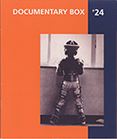
“African Film Festivals in Focus,” Journal of the Yamagata International Documentary Film Festival, Mar 20, 2005. PDF in Japanese, English.
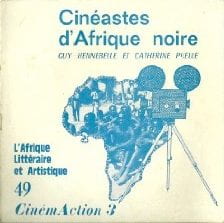
Contributor, Cinéastes d’Afrique Noire: L’Afrique Littéraire et Artistique 49 CiinemAction 3 Guy Hennebelle et Catherine Ruelle, ed. (1978).
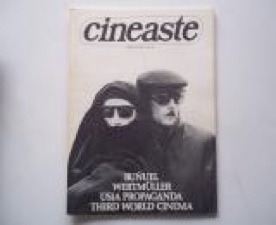
Mahomo, Nana: “Clandestine Filming in South Africa,” by David H, Anthony III, 7:3, 18-19 & 50.
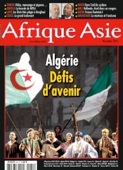
“Nana Mahomo, Un Sud Africain Contre l’Apartheid,” [tr. Guy Hennebelle] Afrique-Asie November 1976.
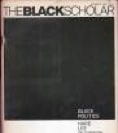
The Black Scholar Interviews: Mahomo. 7 May 1976. David Henry Anthony.
Reference Entries
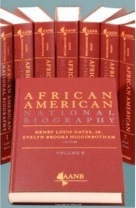
In the African American National Biography:
Entriesal-Siddiq, Abu Bakr
Dean, Harry Foster
Hunter, Charles Norfleet
Russell, George Allen
Teamoh, George
Webster, Milton Price
Yergan, Max
Younge, Samuel Leamon
Reviews
Anthony, David H., “Revisiting Zanzibar’s Revolution,” Cultural Dynamics 28:3 Nov 1, 2016, 326-331.
Anthony, David. Review: Thelonious Monk: The Life and Times of an American Original by Robin D.G. Kelley. Spectrum: A Journal on Black Men. Vol. 4 No. 2 (Spring 2016).
Book Review: The Staircase of a Patron: Sierra Leone and The United Brethren in Christ, Jeremy H. Smith. Journal of Religion in Africa. 46. Issue 2-3. (27 Feb. 2016).
Anthony, David. Fred Ho’s Wicked Theory and Naked Practice. Kalfou: A Journal of Comparative and Relational Ethnic Studies. Vol 3 No. 1 (2016).
Anthony, David. The Spirit and the Shotgun: Armed Resistance and the Struggle for Civil Rights, by Simon Wendt. Kalfou: A Journal of Comparative and Relational Ethnic Studies. Vol 2 No 2 (2015).
Anthony, David H., III. “Getting Pictures Right: Context and Interpretation.” Social Sciences and Missions, Vol 23, no 2, pp 307–308 (2010).
Anthony David H., III. “Making Men in Ghana.” Social Sciences and Missions, Vol 23, no 2, pp 307–308 (2010).
Proudly We Can Be Africans: Black Americans and Africa, 1935-1961 by James Meriwether. Review by: David. H. Anthony, III. African Affairs Vol. 102, No. 407 (Apr. 2003), pp. 356-358.
Anthony, David H., The World That Was Ours: The Story of the Rivonia Trial by Hilda Bernstein. The International Journal of African Historical Studies 25/1 Africana Publishing Company (1992).